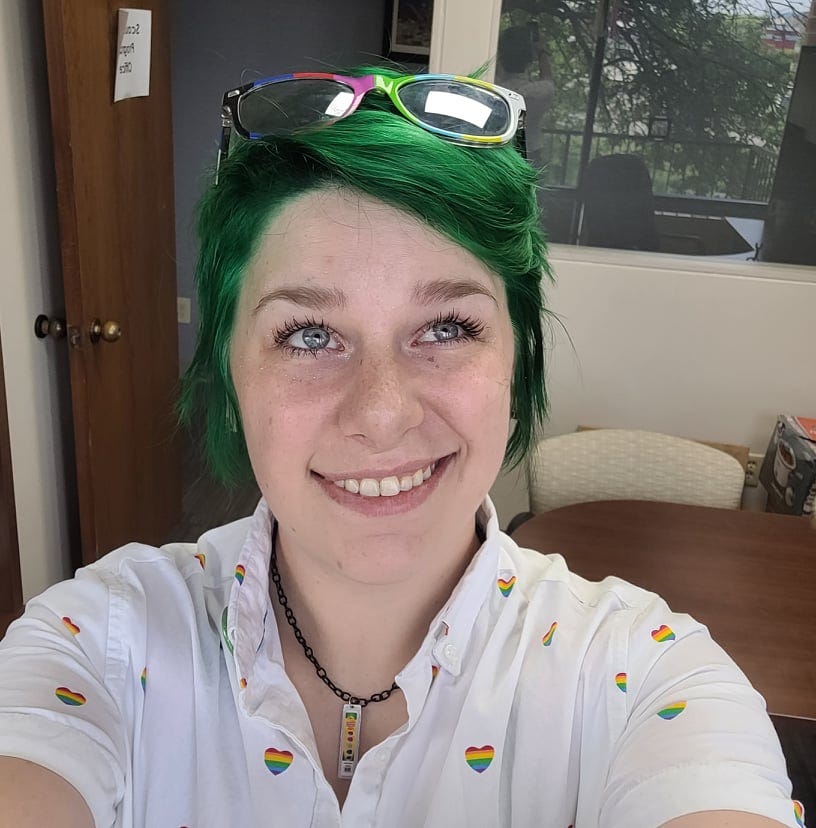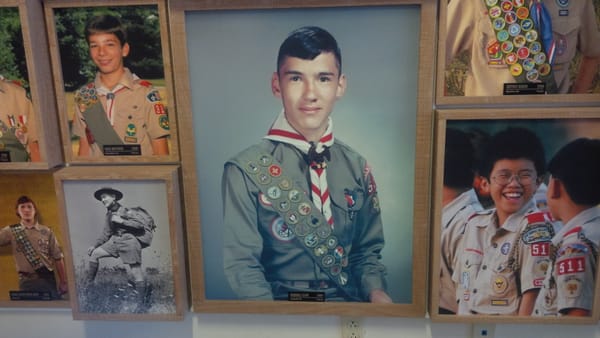What it's like being Scouting's first (known) openly nonbinary full-time employee
"I can just open myself up and throw myself out there, then a lot of that stuff — that bad, negative stuff — is going to hit me, and I'm going to be able to deflect it," says Tayler Hein.

When Tayler Hein first came out as nonbinary, a little more than a year ago, nobody got offended, and nobody took it seriously. Coworkers could still call Hein by she/her pronouns and not really acknowledge it.
"I realized that that didn't sit right with me,” Hein said. So in April of this year, Hein started using they/them pronouns exclusively, and that’s when people started to get uncomfortable.
"Some people haven’t really used they/them pronouns practically. So it's not just like, here's a new identity for me. It's like, here's a whole new thing that you have to learn,” Hein said.
Hein works full time leading the Scoutreach program for the Illowa Council in the Quad Cities area of Iowa and Illinois. They’ve been working for the council since 2019, but their connection to Scouting goes back much further.
Hein spent a lot of time growing up with their grandfather and grandmother, who lived at a scout camp and served as ranger and program director, respectively.
“I started Scouting as soon as I was old enough to be left with my grandma,” Hein said.
But because Hein was assigned female at birth, they would participate alongside the Cub Scouts and not earn any of the ranks. Eventually, as Hein got older, they would spend less time with their grandma, and consequently less time with the Scouts.
Hein didn’t get involved in Scouting again officially until age 19, when they were hired to work as the archery range director at a summer camp. From there, they became the program director for the council’s day camps, and eventually made their way back home, where they started working for the Illowa Council on Scoutreach.

Hein said the dynamic in the office has been awkward since they came out, but that the positive reactions from parents, volunteers and scouts in the program have been really rewarding.
“Representation is so important. And there’s just not a lot in Scouting when it comes to trans identities, or different gender identities, or really just people who are different some of the time,” Hein said.
They’ve had troop leaders reach out to ask how to support nonbinary youth, and heard from scouts who need help coming out as nonbinary.
“If I can just open myself up and throw myself out there, then a lot of that stuff — that bad, negative stuff — is going to hit me, and I'm going to be able to deflect it before it hits those kids behind me,” Hein said. "I can handle it. I know that I can handle it, so I might as well put myself out there as the shield and the educator as much as I can."
While Hein is able to make a lot of progress in their local Scouting community, they still see a number of policy issues for nonbinary scouts. For one, Hein said the BSA needs to expand the sex and gender options on registration forms. Hein is still forced to register as “female,” and said there should be options for nonbinary and intersex folks.
They also want to see troops that are open to all genders — in contrast to the current system where troops are divided along binary gender lines.
"I think that it was always intended as a middle step. I think that where we're headed is fully inclusive, fully integrated Scouting. And I think that this was a compromise for the time being,” Hein said.
Hein’s interactions with youth in Scouting also give them hope for the future. In their role as the Scoutreach leader, Hein is often working with classrooms full of young students. They said teachers often feel weird about Hein being openly nonbinary, so they’ve taken to simply being upfront with the kids. They introduce themself as “Mx. Tayler,” explain their pronouns and give examples, and ask if anyone has questions about it.
"Literally every time, everyone is like nope, that's fine. And they can move on with it. And when the teachers see that the kids don't care, they don't care,” Hein said.


